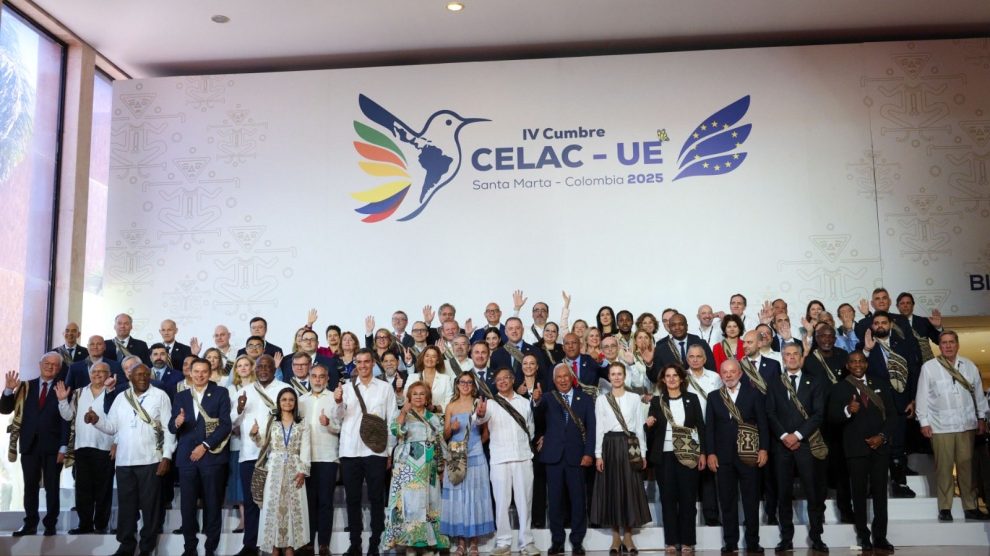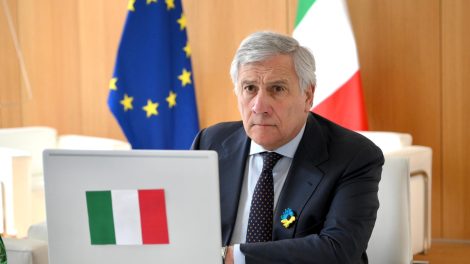Decoding the news: For Italy, represented by Undersecretary of Foreign Affairs Maria Tripodi, the meeting confirmed the growing importance of the Euro-Latin American relationship as a pillar of Rome’s Mediterranean and extra-European foreign policy.
The big picture: The summit, co-chaired by European Council President António Costa and Colombian President Gustavo Petro, took place at a time when the multilateral system is being tested by simultaneous crises — wars, climate change, trade tensions, and energy transitions.
- Costa stressed that “the multipolar world requires a multilateral response to the multiple challenges we face,” reiterating the need for a “natural bond” between Europe and the Americas.
What’s new: Leaders from both regions adopted a joint declaration reaffirming:
- the centrality of human rights and the rule of law;
- the commitment to inclusive and resilient societies;
- the defence of free trade and multilateralism;
- cooperation on citizen security and the fight against organised crime;
The shared will to “strengthen the historical ties that unite us, at a time when multilateralism is being questioned and the need for a fairer and more equitable international order is growing,” according to declaration.
The Italian angle: Italy was represented at the summit by Maria Tripodi, Undersecretary for Foreign Affairs, who described the event as “a confirmation of Italy’s and the EU’s growing focus on a partnership that involves over one-third of UN member states.”
- Undersecretary Tripodi emphasised:
- “Recent progress in the EU’s agreements with Latin American partners confirms the potential for a stronger economic link,” she said.
- “In times of uncertainty, we must strengthen our interconnections, diversify our markets, and cooperate with even greater determination to respond to shared challenges.”
- She concluded that Italy’s goal is clear: “To build together a partnership based on trust, reciprocity, and shared prosperity.”
The expert’s take: According to Alberto Rizzi, senior fellow at the European Council on Foreign Relations (ECFR) and an expert in geoeconomics, the trade and political dynamics emerging from the summit fit into a broader process of redefining global value chains.
- “The addition of safeguard measures for the agricultural sector and, most importantly, Trump’s unilateral tearing apart of the global trade environment have shifted the mood in Europe,” says Rizzi.
- Rizzi notes that several member states that were previously sceptical or openly critical are now backing the EU-MERCOSUR deal. While the MERCOSUR market cannot replace the U.S. in size, it offers vital breathing space for Europe’s struggling automotive industry and opens opportunities for other manufacturers.
- Signing the deal, he adds, would also send “a key message to other countries: the EU is a reliable trade partner capable of delivering tangible economic benefits.”
Why it matters: For Rome, Euro-Latin American dialogue is an integral part of its broader strategy for economic and geopolitical diversification: a way to expand the Mediterranean’s global connections, strengthen climate cooperation, and open new trade routes.
- The EU relations with CELAC offers a critical path for economic diversification, allowing Europe to reduce its dependency on China by securing supplies of vital raw materials and strategic minerals, such as lithium and graphite.
(Photo: @eucopresident)





